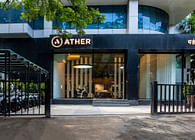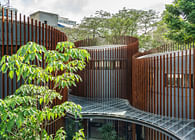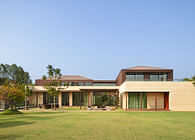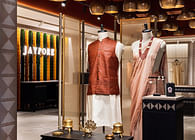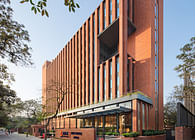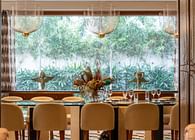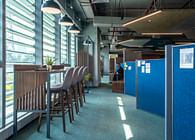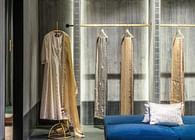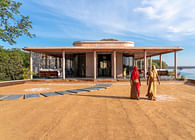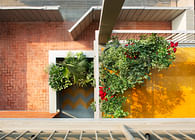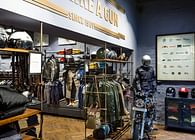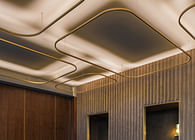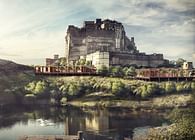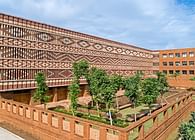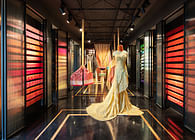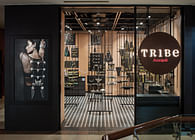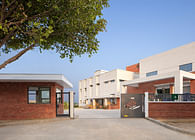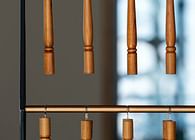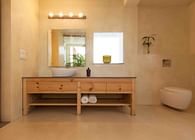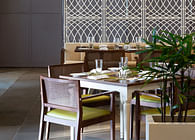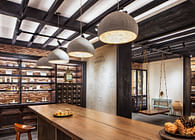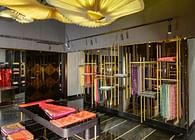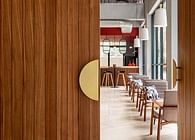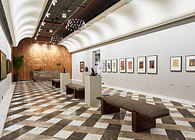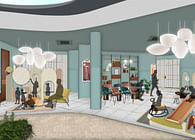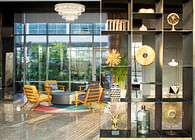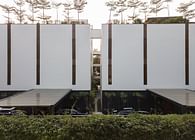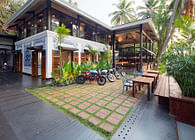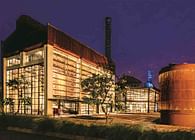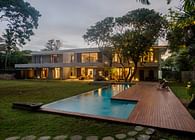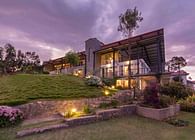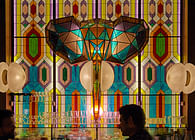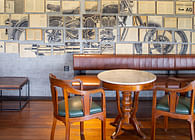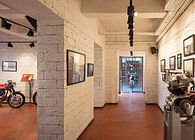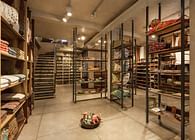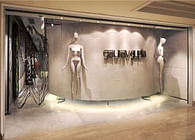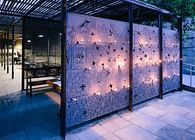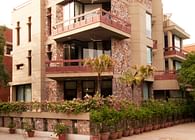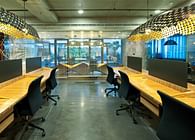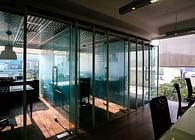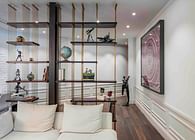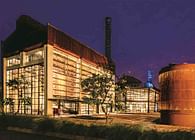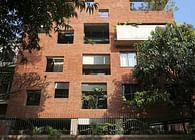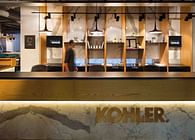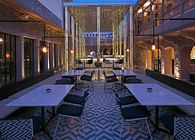
New Delhi, IN
Opening to stunning views of the valley from its location in the Aravalli hills at Udaipur, RAAS Devigarh is an 18th-century palace that was converted into an all-suite luxury hotel in 1999.
The current owner, who took over the property in 2016, has a repertoire of creating luxury boutique destinations that craft elevated narratives infused with authenticity, such as the award-winning RAAS Jodhpur, designed in collaboration with Studio Lotus + Praxis. He invited Studio Lotus to redress key design concerns at the Devigarh heritage property, which had led to a dilution in the visitor and spatial experience, thus impacting potential business.
Primary amongst those was the urgency to connect various spaces of the three-storeyed public building sited adjacent to the pool. Housed in the same facility, the Gym, Restaurant, Bar and Rooftop areas could only be collectively accessed through a dim service stairway; with the existing main staircase offering disconnected circuitous routes from the suites. The haphazard approach and lack of outdoor spaces marginalised the F&B/hospitality areas into defunct pockets instead of maximising its west-facing location with panoramic views as the ideal environment to experience the splendour of sun-soaked days and sundowners.
Additionally, since the interiors were masked in a swathe of white, representing the original intent to demarcate this property from typical traditional properties of the region, there was no shift in experiences between spaces; under-utilising areas that could add differentiating layers to the overall narrative and revenue.
The main architectural intervention was to insert a custom-crafted metal staircase to create connections between the spaces of the public building. The stepped forms of the palace and metal chequered plates were woven in as inspiration for its design of folded perforated sheets and plates nut bolted on MS columns. Painted in the same grey as the local stone and casting gentle shadows of its perforations, the contemporary staircase sits lightly against the heavy form of the public building: plugging effortlessly, as if it always existed, without disrupting the overall vocabulary.
Acuity in defining connections helped create a sense of arrival, previously unexplored, for the second level Restaurant that has now been given two points of entry and zones of transience. With demand for more outdoor space, part of the interior was converted into a ‘verandah’ with porous edges that can be peeled open. Existing columns were stripped off of white paint to reveal the natural stone while coats of lime plaster tinged in the same green as the existing fresco and bespoke furniture, produced by Mangrove Collective, layered colour and intimacy into the space. A custom-designed bar in acacia wood and brass has been inserted to doubly function as the buffet counter. Constructing the formal dining zone, the outdoor restaurant deck has been extended in the same visual language as the metal staircase, reinforcing its wrap of striations with wooden louvers shading lower areas against direct sunlight.
The main intent with the intervention in the Durbar Hall was to create a secondary destination that would be a deliberate departure from the other hospitality spaces. The banality of the existing white expanse was broken by inserting a plush narrative with different zones of intimate seating and flowing conversations. Since the Hall is not glazed, the wind chill has been screened off with blinds. A laborious process of sandblasting portions of the Hall revealed serendipitous discoveries of grey and red stone underneath, which added richness to the space. While the central area was inspired by living room settings, the niches were turned into cozy baithaks with space for performances included into the circulation corridor. A Wenge wood bar, deep tones of materials and vintage game tables have been sifted as nuances to the laidback theme of luxury.
The design team also worked on extending the hospitality experience by revitalising dead terrace spaces, above a line of sunken suites, into a small herb garden developed by Edible Routes. Threaded with outdoor seating, the space gives guests a peek into the organic produce supplied to the kitchen.
Completed in 2018, Studio Lotus’ interventions of creating connections and different experiences have helped guests embark on journeys of discovery and revelations – transforming their stay at RAAS Devigarh into engaging memories they are likely to revisit.
Status: Built
Location: Udaipur City, IN
Firm Role: Architect




